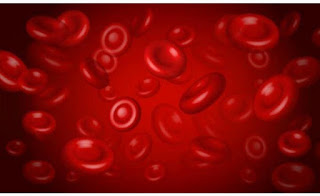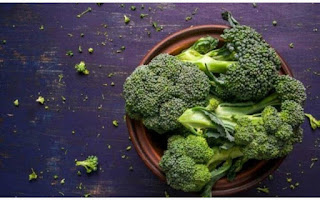The most obvious causes of iron deficiency in adults are; excessive consumption of tea and coffee, roasting or overcooking the meat in the oven, and frequent consumption of processed foods such as sausage and salami. In some people, iron is not sufficiently absorbed by the intestine. This is another factor that causes iron deficiency. Excessive menstrual bleeding in women, frequent and excessive births, miscarriages, having abortions, benign or malignant tumors in the gastrointestinal tract are also causes of iron deficiency.
Anemia due to iron deficiency does not show any symptoms in some cases. Iron deficiency can be diagnosed in blood tests done at routine health checkups. Symptoms of iron deficiency include; Skin pallor, Weakness in the body, fatigue, Concentration disorder, Headache, Numbness in hands and feet, Nervousness, Buzzing in the ears, Cracks in the lips and wounds around the mouth, Quick breakage of nails, Loss of hair can be counted.
Among the advanced symptoms of iron deficiency; Palpitations, soil or ice eating, slowed thyroid function, and restless legs syndrome are also seen. In the symptoms of iron deficiency in children, delay in walking-sitting-talking and learning difficulties may occur in children."What should we eat for iron deficiency?" The question is one of the most asked questions in society. To prevent iron deficiency, apricots, dried legumes, fresh vegetables and fruits should be consumed in abundance. One of the best things to do about what to eat in iron deficiency is to consume vitamin C frequently.
Vitamin C increases the absorption of iron from the intestines. The question of what not to eat in iron deficiency is also very important. Caffeinated beverages, milk and bran should not be consumed frequently as they reduce iron absorption. In addition, the intake of vitamin B12 is very important in iron deficiency. Because B12 enables red blood cells to be produced in the bone marrow and can lead to anemia.
To increase the absorption of iron from the intestine; Vitamin C increases the absorption of iron. For this reason, consuming eggs with orange juice or tomatoes and meatballs with green salad is important in terms of increasing iron absorption. The iron in leavened bread is more absorbed than in unleavened bread. Undercooked legumes or bran bread reduce the absorption of iron. Nutrition with fiber foods reduces the absorption of iron. Aluminum, stainless steel and tin, which we use to store food, also reduce the absorption of iron.
One way to prevent iron deficiency is not to consume tea and coffee during or immediately after meals. Take care to consume tea and coffee as much as possible between meals. It is also beneficial to consume the tea open and with lemon. In order to increase the number of red blood cells, it is important to get the minerals the body needs, especially iron and B12.In other words, instead of consuming foods rich in iron, b12 and folic acid, you should also eat foods that contain other minerals and vitamins. Anemia can be at various levels and in some cases it may not be possible to get enough iron, B12 through food alone. In these cases, you can use iron or B12 supplements by consulting your doctor.
Vitamin C increases the absorption of iron from the intestines. The question of what not to eat in iron deficiency is also very important. Caffeinated beverages, milk and bran should not be consumed frequently as they reduce iron absorption. In addition, the intake of vitamin B12 is very important in iron deficiency. Because B12 enables red blood cells to be produced in the bone marrow and can lead to anemia.
To increase the absorption of iron from the intestine; Vitamin C increases the absorption of iron. For this reason, consuming eggs with orange juice or tomatoes and meatballs with green salad is important in terms of increasing iron absorption. The iron in leavened bread is more absorbed than in unleavened bread. Undercooked legumes or bran bread reduce the absorption of iron. Nutrition with fiber foods reduces the absorption of iron. Aluminum, stainless steel and tin, which we use to store food, also reduce the absorption of iron.









